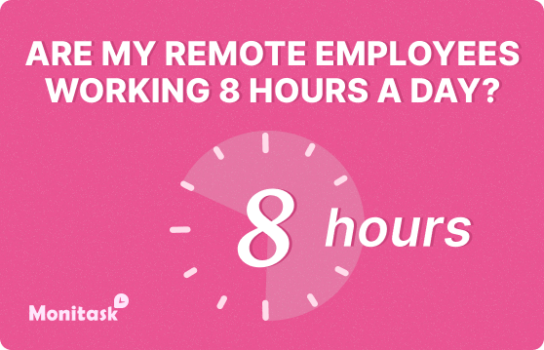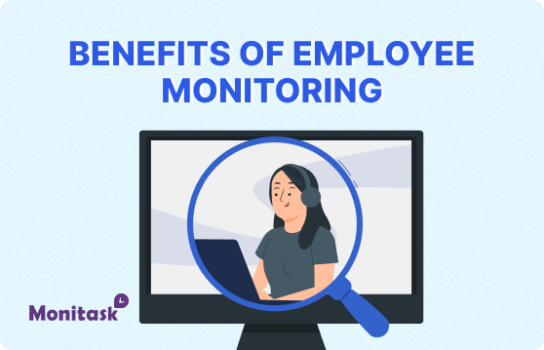Fractional HR
In today's rapidly evolving business landscape, companies are constantly seeking innovative ways to optimize their operations and maximize efficiency. One such approach that has gained significant traction in recent years is Fractional HR. This revolutionary concept is transforming the way organizations manage their human resources, offering a flexible and cost-effective solution to meet their HR needs.
What is Fractional HR?
Fractional HR refers to the practice of outsourcing HR functions on a part-time or project basis, rather than employing a full-time HR professional or team. This approach allows businesses to access high-level HR expertise and services without the commitment and overhead costs associated with a full-time HR department.
The concept of Fractional HR is rooted in the broader trend of the "gig economy" and the increasing demand for flexible work arrangements. It enables companies to tap into a pool of experienced HR professionals who can provide specialized skills and knowledge on an as-needed basis.
Key Components of Fractional HR
1. Flexibility
One of the primary advantages of Fractional HR is its flexibility. Companies can scale their HR support up or down based on their current needs and budget constraints. This adaptability is particularly valuable for small and medium-sized enterprises (SMEs) that may not require full-time HR support but still need access to professional HR services.
2. Expertise on Demand
Fractional HR providers typically offer a range of specialized skills and expertise. This allows businesses to access high-level HR knowledge without the need to hire and train multiple full-time employees. Whether it's talent acquisition, employee relations, compliance, or performance management, companies can tap into specific areas of expertise as needed.
3. Cost-Effectiveness
By opting for Fractional HR services, organizations can significantly reduce their HR-related costs. Instead of bearing the expenses associated with full-time salaries, benefits, and overhead, companies only pay for the services they actually use. This can result in substantial savings, especially for smaller businesses or startups operating on tight budgets.
4. Strategic Focus
Fractional HR allows companies to focus on their core business activities while leaving HR matters in the hands of experienced professionals. This strategic approach enables organizations to allocate their resources more efficiently and concentrate on growth and innovation.
Benefits of Fractional HR
1. Access to Specialized Expertise
Fractional HR providers often bring a wealth of experience from working with various industries and organizations. This diverse background allows them to offer unique insights and best practices that may not be available through traditional in-house HR departments.
2. Scalability
As businesses grow or face seasonal fluctuations, their HR needs may change. Fractional HR services can easily scale up or down to accommodate these shifts, providing a level of agility that is difficult to achieve with a fixed in-house team.
3. Reduced Risk
By outsourcing HR functions to experienced professionals, companies can mitigate the risks associated with non-compliance or mishandling of sensitive employee matters. Fractional HR providers stay up-to-date with the latest regulations and best practices, ensuring that their clients remain compliant and minimize legal exposure.
4. Improved Efficiency
Fractional HR professionals are often equipped with the latest tools and technologies to streamline HR processes. This can lead to increased efficiency in areas such as payroll management, benefits administration, and employee onboarding.
Common Fractional HR Services
1. Recruitment and Talent Acquisition
Fractional HR providers can assist with developing recruitment strategies, sourcing candidates, conducting interviews, and managing the hiring process. This is particularly valuable for companies experiencing rapid growth or those seeking to fill specialized positions.
2. Employee Relations
Managing employee relations is a critical aspect of HR. Fractional HR professionals can help mediate conflicts, develop communication strategies, and foster a positive work environment.
3. Compliance and Risk Management
Staying compliant with ever-changing employment laws and regulations can be challenging. Fractional HR services often include keeping companies up-to-date with legal requirements and implementing necessary policies and procedures.
4. Performance Management
Developing and implementing effective performance management systems is crucial for organizational success. Fractional HR can assist in creating performance evaluation processes, setting goals, and providing feedback mechanisms.
5. Training and Development
Fractional HR providers can help identify skill gaps within an organization and develop training programs to address them. This may include leadership development, soft skills training, or technical skill enhancement.
Implementing Fractional HR: Best Practices
1. Assess Your Needs
Before engaging a Fractional HR provider, carefully evaluate your organization's specific HR needs. Consider factors such as company size, industry, growth projections, and current HR challenges.
2. Choose the Right Partner
When selecting a Fractional HR provider, look for experience in your industry, a track record of success, and a good cultural fit with your organization. It's essential to find a partner who understands your business goals and can align their services accordingly.
3. Establish Clear Communication Channels
Effective communication is crucial for the success of any Fractional HR arrangement. Set up regular check-ins, define reporting structures, and ensure that all stakeholders are aware of the Fractional HR provider's role and responsibilities.
4. Integrate with Existing Systems
To maximize the benefits of Fractional HR, integrate the provider's services with your existing HR systems and processes. This may involve granting access to relevant software or databases and ensuring smooth information flow between the provider and your internal team.
5. Monitor and Evaluate Performance
Regularly assess the effectiveness of your Fractional HR arrangement. Set key performance indicators (KPIs) and conduct periodic reviews to ensure that the services provided are meeting your organization's needs and delivering value.
Challenges and Considerations
1. Cultural Fit
One potential challenge of Fractional HR is ensuring that the provider aligns with your company's culture and values. It's important to choose a partner who can adapt to your organizational ethos and effectively represent your brand to employees.
2. Continuity and Consistency
With Fractional HR, there may be concerns about maintaining consistency in HR practices and policies. To address this, establish clear guidelines and documentation to ensure continuity across different projects or engagements.
3. Data Security and Confidentiality
Sharing sensitive employee information with an external provider requires careful consideration of data security and confidentiality measures. Ensure that your Fractional HR partner has robust security protocols in place and is compliant with relevant data protection regulations.
4. Balancing Internal and External Resources
Finding the right balance between internal HR capabilities and external Fractional HR services can be challenging. Regularly assess your HR needs and adjust the mix of internal and external resources accordingly.
The Future of Fractional HR
As the business landscape continues to evolve, Fractional HR is poised to play an increasingly important role in shaping the future of human resources management. Several trends are likely to influence the development of Fractional HR in the coming years:
1. Increased Adoption of Remote Work
The global shift towards remote work has accelerated the need for flexible HR solutions. Fractional HR providers are well-positioned to support companies in managing distributed workforces and navigating the challenges of remote work environments.
2. Emphasis on Specialized Skills
As HR functions become more complex and specialized, the demand for niche expertise is likely to grow. Fractional HR providers may focus on developing deep expertise in specific areas such as AI-driven recruitment, employee wellness programs, or diversity and inclusion initiatives.
3. Integration of Technology
The continued advancement of HR technology will play a significant role in shaping Fractional HR services. Providers will need to stay at the forefront of technological innovations, offering clients access to cutting-edge HR tools and analytics capabilities.
4. Focus on Employee Experience
As organizations increasingly recognize the importance of employee experience in driving engagement and retention, Fractional HR providers may expand their services to include employee experience design and implementation.
Conclusion
Fractional HR represents a paradigm shift in the way organizations approach human resources management. By offering flexibility, expertise, and cost-effectiveness, it provides a compelling solution for businesses of all sizes looking to optimize their HR functions.
As the concept continues to gain traction, we can expect to see further innovations and refinements in Fractional HR services. Companies that embrace this approach stand to benefit from access to high-level HR expertise, improved efficiency, and the ability to focus on their core business objectives.
Ultimately, the success of Fractional HR lies in its ability to adapt to the changing needs of businesses and workforces. As organizations navigate an increasingly complex and dynamic business environment, Fractional HR is poised to play a crucial role in helping them build resilient, agile, and high-performing teams.
By leveraging the power of Fractional HR, companies can position themselves for success in the ever-evolving world of work, ensuring that they have the right HR support to drive growth, innovation, and employee satisfaction.


